第95章 CHAPTER XX THE GERMAN TYPE OF CITIZENSHIP(5)
"What? You are a citizen of another country while you claim American citizenship?" said Raeder. "You can no more be a citizen of two countries at the same time than the husband of two wives at the same time.""Well, why not?" laughed Schaefer. "An American wife for America, and a German wife for Germany. You will excuse me," he added, bowing toward Mrs. Wakeham.
"Don't be disgusting," said Hugo Raeder. "Apart from the legal difficulty the chief difficulty about that scheme would be that whatever the German wife might have to say to such an arrangement, no American wife would tolerate it for an instant.""I was merely joking, of course," said Schaefer.
"But, Professor Schaefer, suppose war should come between Germany and America," said Larry.
"War between Germany and America--the thing is preposterous nonsense, not to be considered among the possibilities!""But as a mere hypothesis for the sake of argument, what would your position be?" persisted Larry.
Professor Schaefer was visibly annoyed. "I say the hypothesis is nonsense and unthinkable," he cried.
"Come on, Schaefer, you can't escape it like that, you know," said Hugo Raeder. "By that law of yours, where would your allegiance be should war arise? I am asking what actually would be your standing. Would you be a German citizen or an American citizen?""The possibility does not exist," said Professor Schaefer.
"Quite impossible," exclaimed Meyer.
"Well, what of other countries then?" said Hugo, pursuing the subject with a wicked delight. His sturdy Americanism resented this bigamous citizenship. "What of France or Britain?""Ah," said Professor Schaefer with a sharpening of his tone. "That is quite easy.""You would be a German, eh?" said Raeder.
"You ask me," exclaimed Professor Schaefer, "you ask me as between Germany and France, or between Germany and Britain? I reply," he exclaimed with a dramatic flourish of his hand, "I am a worshipper of the life-giving sun, not of the dead moon; I follow the dawn, not the dying day."But this was too much for Larry. "Without discussing which is the sun and which is the moon, about which we might naturally differ, Professor Schaefer, I want to be quite clear upon one point. Do Iunderstand you to say that if you were, say a naturalised citizen of Canada, having sworn allegiance to our Government, enjoying the full rights and privileges of our citizenship, you at the same time would be free to consider yourself a citizen of Germany, and in case of war with Britain, you would feel in duty bound to support Germany? And is it that which the Delbruck Law is deliberately drawn, to permit you to do?""Well put, Larry!" exclaimed Hugo Raeder, to whom the German's attitude was detestable.
Professor Schaefer's lips curled in an unpleasant smile. "Canada, Canadian citizenship! My dear young man, pardon! Allow me to ask you a question. If Britain were at war with Germany, do you think it at all likely that Canada would allow herself to become involved in a European war? Canada is a proud, young, virile nation. Would she be likely to link her fortunes with those of a decadent power?
Excuse me a moment," checking Larry's impetuous reply with his hand. "Believe me, we know something about these things. We make it our business to know. You acknowledge that we know something about your mines; let me assure you that there is nothing about your country that we do not know. Nothing. Nothing. We know the feeling in Canada. Where would Canada be in such a war? Not with Germany, I would not say that. But would she stand with England?"Larry sprang to his feet. "Where would Canada be? Let me tell you, Professor Schaefer," shaking his finger in the professor's face. "To her last man and her last dollar Canada would be with the Empire.""Hear, hear!" shouted Hugo Raeder.
The professor looked incredulous. "And yet," he said with a sneer, "one-half of your people voted for Reciprocity with the United States.""Reciprocity! And yet you say you know Canada," exclaimed Larry in a tone of disgust. "Do you know, sir, what defeated Reciprocity with this country? Not hostility to the United States; there is nothing but the kindliest feeling among Canadians for Americans.
But I will tell you what defeated Reciprocity. It was what we might call the ultra loyal spirit of the Canadian people toward the Empire. The Canadians were Empire mad. The bare suggestion of the possibility of any peril to the Empire bond made them throw out Sir Wilfrid Laurier and the Liberal Party. That, of course, with other subordinate causes.""I fancy our Mr. Taft helped a bit," said Hugo Raeder.
"Undoubtedly Mr. Taft's unfortunate remarks were worked to the limit by the Conservative Party. But all I say is that any suggestion, I will not say of disloyalty, but even of indifference, to the Empire of Canada is simply nonsense."At this point a servant brought in a telegram and handed it to Mr. Wakeham. "Excuse me, my dear," he said to his wife, opened the wire, read it, and passed it to Hugo Raeder. "From your chief, Hugo.""Much in that, do you think, sir?" inquired Hugo, passing the telegram back to him.
"Oh, a little flurry in the market possibly," said Mr. Wakeham.
"What do you think about that, Schaefer?" Mr. Wakeham continued, handing him the wire.
Professor Schaefer glanced at the telegram. "My God!" he exclaimed, springing to his feet. "It is come, it is come at last!" He spoke hurriedly in German to his friend, Meyer, and handed him the telegram.
Meyer read it. "God in heaven!" he cried. "It is here!" In intense excitement he poured forth a torrent of interrogations in German, receiving animated replies from Professor Schaefer. Then grasping the professor's hand in both of his, he shook it with wild enthusiasm.